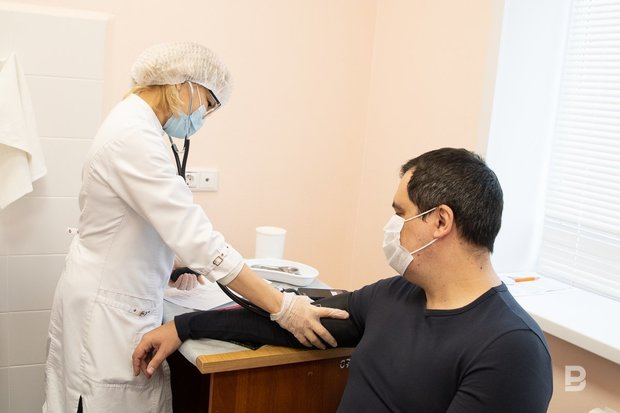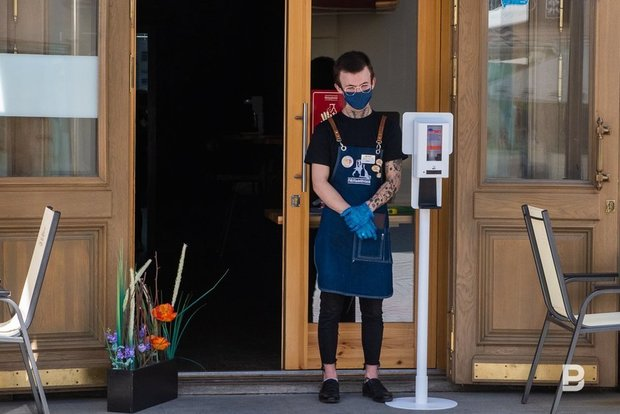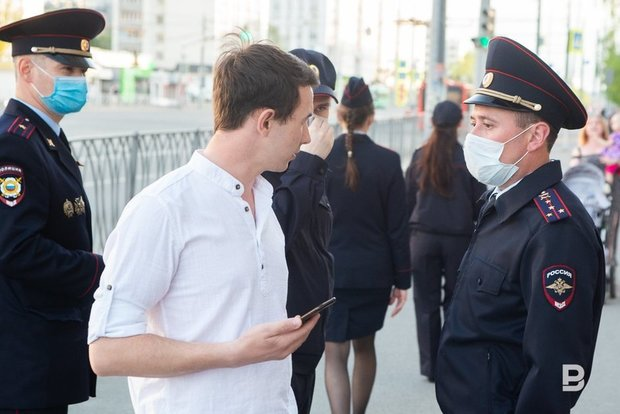5 questions about mandatory vaccination: is this legal in general?
A talk with a lawyer about what laws regulate mandatory vaccination
Moscow is introducing mandatory vaccination for people whose job is to interact with clients. In Bashkiria, people weren’t be allowed to go to restaurants, stadiums, concerts without a vaccination certificate. And it became know just a few days ago that Tatarstan’s chief sanitary doctor Marina Patyashina doesn’t rule out that the republic will introduce mandatory vaccination for some groups of the population. The country doesn’t want to receive a vaccine voluntarily, and it seems that now many will be forced to do so. But people wonder: how does all this comply with the Constitution? Because a citizen has the right to choose if to agree to receive a vaccine or not. Lawyer, independent expert Anatoly Chikvin answers Realnoe Vremya’s five questions about if the requirement of mandatory vaccination violates Russian citizens’ rights (a spoiler: no).
- The concept of mandatory vaccination itself sounds quite threatening. But it is legal? Because legislation spells out the voluntary nature of any vaccination, isn’t this right?
It is an absolutely legal concept. In this respect, two basic laws are in force in Russia — No. 157 On Preventive Immunisation Against Infectious Diseases and No. 52 On Sanitary and Epidemiological Well-Being of the Population. So they are accompanied by a number of other laws and by-laws that provide the execution of these two laws. For instance, Sanitary and Epidemiological Rule 3.3.2367-08 Sanitary and Epidemiological Rules of Preventive Immunisation Organisation. They explain in what cases vaccination is mandatory.
Article 55 of the Constitution of the Russian Federation reads that a person and citizen’s rights and freedoms can be limited “as much as it is needed to protect the fundamentals of the Constitutional layout, morality, health, rights and legal interests of other people, protect the country’s defence and the state’s safety”. And here we are interested in the part that refers to other people’s health and legal interests. This is why we are asked to receive a vaccine. A refusal from the vaccination itself isn’t an administrative offence, you won’t be taken administrative measures, nobody will chase you with a syringe in the street. But it can become harder to live without a vaccine.
- Have regional authorities the right to introduce some requirements for mandatory vaccines for certain groups of the population? Shouldn’t this be regulated at federal level?
Russia has two statutory vaccination calendars. It is the National Calendar of Preventive Vaccines and the Calendar of Preventive Vaccines According to Due to Epidemic. The vaccine against COVID-19 was added to the second calendar. This happened as early as 2020 according to the Ministry of Health’s Order No. 1307-N as of 9 December. According to this order and the law on preventive immunisation, the chief state sanitary doctor of Russia and chief sanitary doctors of the Federation’s regions have the right to adopt a decree on mandatory preventive vaccination for citizens or their separate groups due to an epidemic.
This requires neither federal laws nor governors’ orders. A decree of the chief state sanitary doctor of the Federation’s region is enough. For Tatarstan, a decree signed by Marina Patyashina (if it appears) will be such a document.
- Mandatory vaccination for employees of the service industry is being introduced in Moscow and some other regions. Is it legal to suspend a person from work or dismiss him if he refuses to receive a vaccine?
Due to the duties imposed on employers by law, they must provide safe working conditions and safe work for their employees. If the chief sanitary doctor of a region adopted a decree that employees of the service sector must be vaccinated against coronavirus, the first thing the employer should do is to organise this process. Then, the employee should start controlling vaccination certificates.
If an employee refuses to receive a vaccine, it is his right, I will repeat. But the employer not only has the right but also is obliged to suspend him from work if his work can infect others. If he is suspended from work, his salary isn’t paid (according to Article 76 of Russia’s Labour Code). Anti-vaxxers cannot be dismissed, revoked a bonus, fined. But the suspension will last unless the violation is eliminated (that’s to say, unless the person goes and receives a vaccine).
Article 55 of Law on Sanitary and Epidemiological Well-Being of the Population envisages the employer’s responsibility for this. Punishment can be administrative (Article 6.3 and Article 20.6.1 of Russia’s Code of Administrative Offences) or criminal (if a violation of sanitary and epidemiological rules led to the infection or even deaths of people).
- Some regions are socially isolating people who haven’t been inoculated. For instance, in Bashkiria, people who don’t have a vaccination certificate or a negative PCR test won’t be permitted to enter different public places. In July, tourists in Karelia will be accommodated in hotels only if they provide a vaccination certificate or a negative PCR. How does this comply with Russian laws? Won’t this be discrimination or restriction of a citizen’s right to freedom of mobility?
These measures in general also comply with our laws. Now there is a red alert in all the regions of the country. It refers to legislation’s neighbouring sphere, which is laws on the protection of the population from emergencies. All those restrictions you are talking about are imposed during a red alert, including the restriction of citizens’ right to freedom of mobility. We have already mentioned that the Constitution permits limiting citizens’ rights, but only by federal law. Such a law was adopted as early as 1993, its Article 8 describes the foundations on which the right to freedom of mobility can be limited. The list of these restrictions has a clause on the danger of the spread of infectious diseases. Moreover, I will again pay attention to the fact here nothing new was invented here — they upped and began to use the law adopted more than 20 years ago.
- Do other countries require mandatory vaccines? What if I go and complain in the European Court of Human Rights that Russia doesn’t respect my right not to receive a vaccine?
Firstly, you will have this right. Nobody has the right to take and vaccinate you forcedly. Another case is that if you match certain decrees (you work in a certain sphere or try to travel to certain regions), your principled position will bring you a number of inconveniences. But you are welcome to choose, to accept these inconveniences or not.
Secondly, I am afraid neither will the European Court of Human Rights understand you. On 8 April 2021, the European Court of Human Rights’s Grand Chamber dealt with Vavřička and Others v. Czech Republic case. In this lawsuit, citizens of the Czech Republic tried to appeal the obligation of children’s vaccination and demanded to recognise that nobody — either the parliament or the head of the republic — has the right to oblige parents to vaccinate children.
The European Court of Human Rights ruled that mandatory vaccination didn’t violate human rights. Moreover, in the same rule, the Court admitted that the possibility of punishment for parents’ refusal to vaccinate children was legal. This means that it is pointless to try to challenge adults’ mandatory vaccination in the European Court of Human Rights. Its judges have already formulated their position.